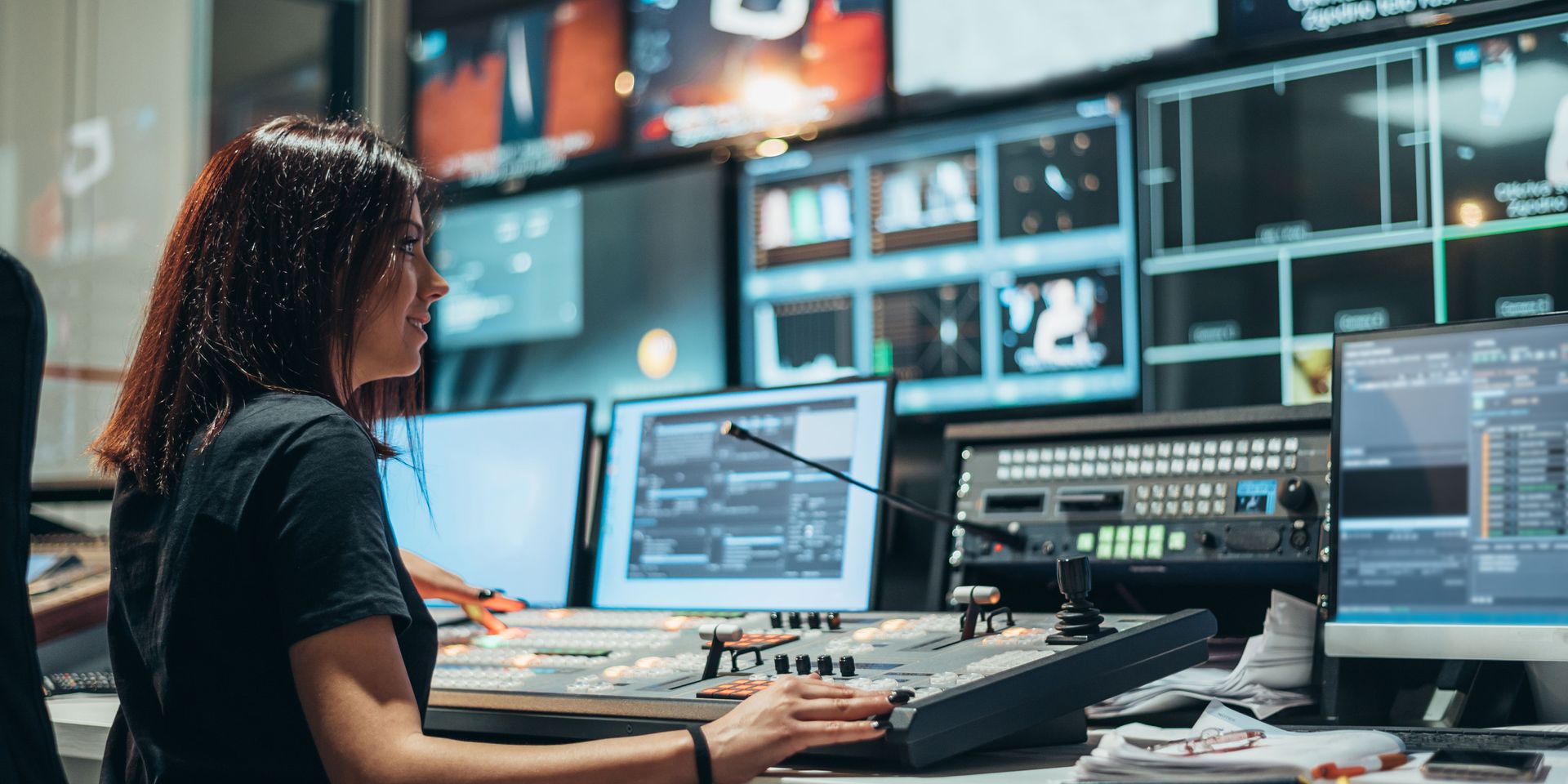The audiovisual production manager profession requires a combination of technical and interpersonal skills. Interpersonal skills such as organization, rigor, responsiveness, and the ability to manage stress are also crucial for successfully carrying out the varied and often unforeseen tasks that fall to the production manager. As teamwork is at the heart of this profession, it is essential to have excellent interpersonal skills, to be able to communicate effectively, and to demonstrate diplomacy in coordinating the various stakeholders.
Qualifications for the audiovisual supervisor position may vary depending on the industry or employer. Common foundational courses include:
- BTS in Audiovisual Professions (specializations: Production Management, Engineering Techniques, Editing/Production).
- Professional Bachelor's Degree in Audiovisual (audiovisual production techniques).
- Master's in Audiovisual or Multimedia Production (for senior supervisor positions).
- Additional training: Training in new audiovisual production technologies (4K cameras, live production, etc.).
- Experience required: 3 to 5 years of experience as an Audiovisual Technician or Assistant Supervisor.
Salary:
The salary of an audiovisual supervisor in France typically starts around €1800 to €2200 gross per month for entry-level profiles or those with limited experience. This can increase with experience and specific qualifications.
Working Conditions:
- Irregular hours: Supervisors may be required to work evenings, weekends, or holidays, depending on production needs.
- Work under pressure: Managing projects with tight deadlines and high expectations can create a stressful working environment.
- Mobility: Frequent travel is necessary, particularly for outdoor shoots or various production locations.
- Exposure to varied environments: The work may take place in diverse weather conditions, both indoors and outdoors, requiring constant adaptation.
- Intermittent employment: Many audiovisual supervisors are employed under the intermittent entertainment worker status, which involves alternating between periods of activity and inactivity.
Career Growth Opportunities:
- Chief Supervisor: After several years of experience, an audiovisual supervisor can move into the role of Chief Supervisor. In this role, they manage the entire technical team and oversee the preparation of events or productions.
- Technical Manager: This position involves managing equipment and human resources at a more strategic level, overseeing the organization of operations and planning large-scale shoots.
- Production Supervisor: Some supervisors may move into production management roles, where they are responsible for coordinating the entire audiovisual production, including technical and logistical aspects.
- Specialization: An audiovisual supervisor can also choose to specialize in a specific area of audiovisual production, such as sound, lighting, or video, becoming an expert in that field and managing more complex projects.
- Autonomy and creation of a personal studio or business: Some experienced audiovisual supervisors choose to create their own company or production studio, offering technical services for events or audiovisual productions.



